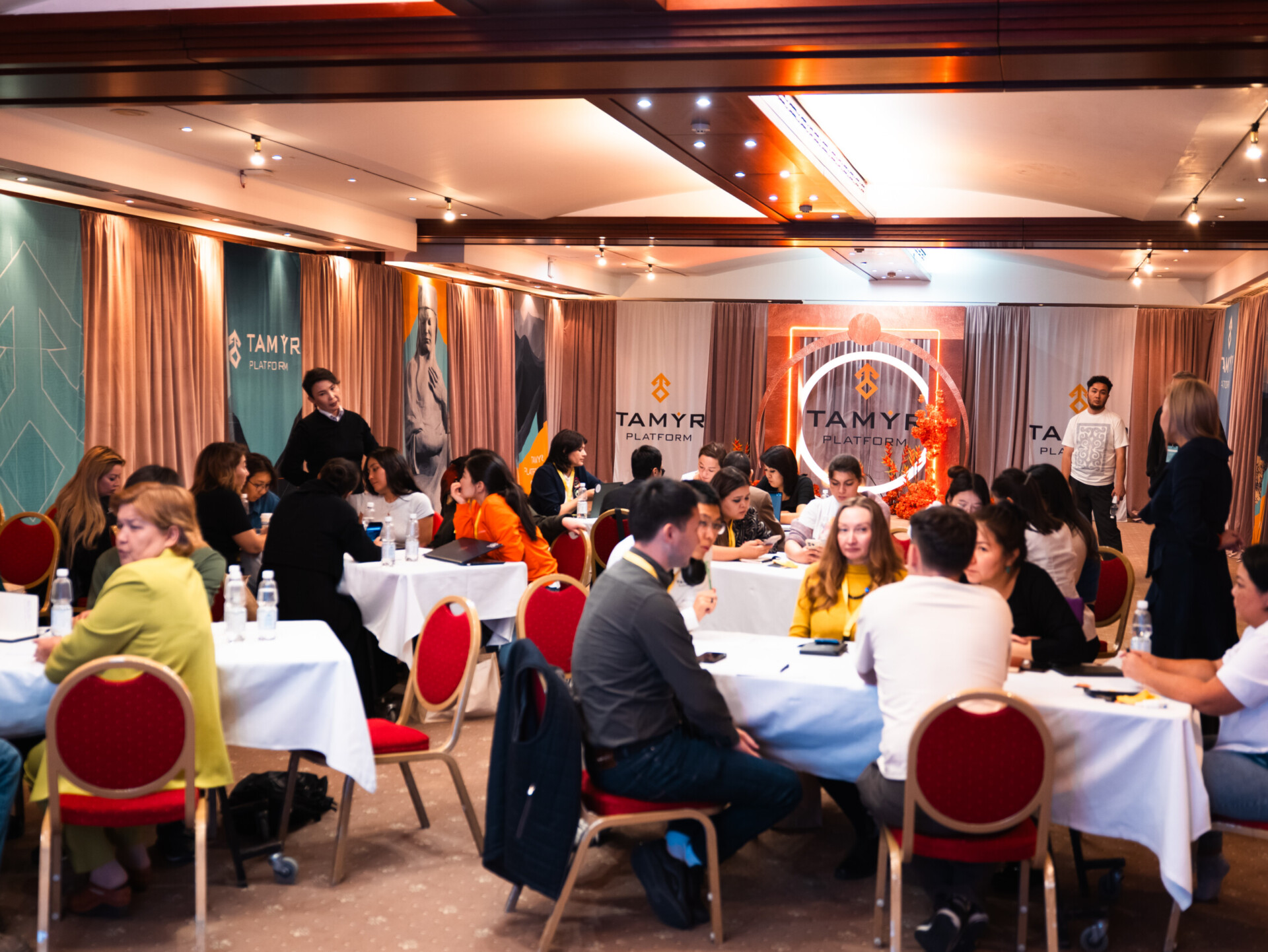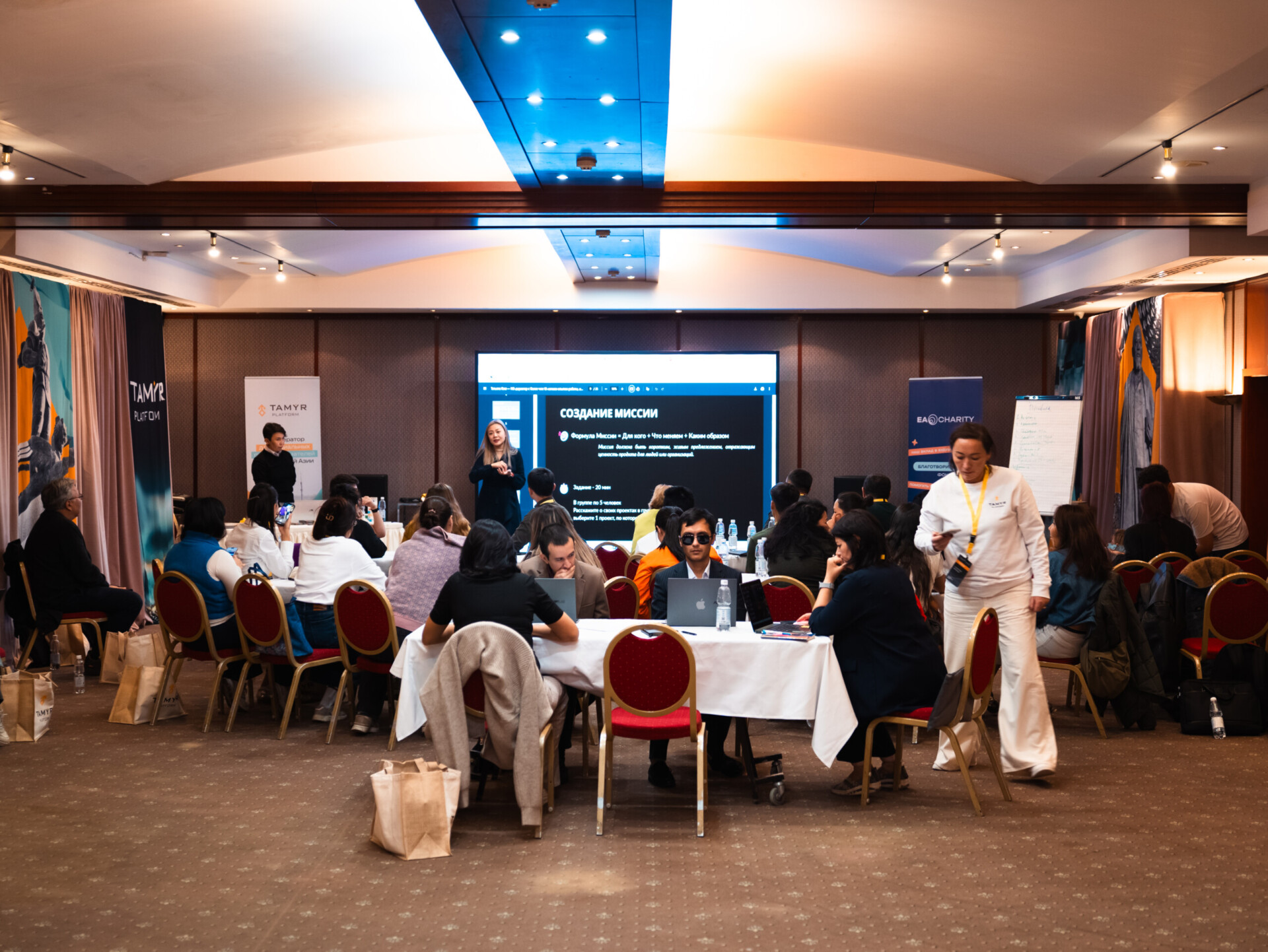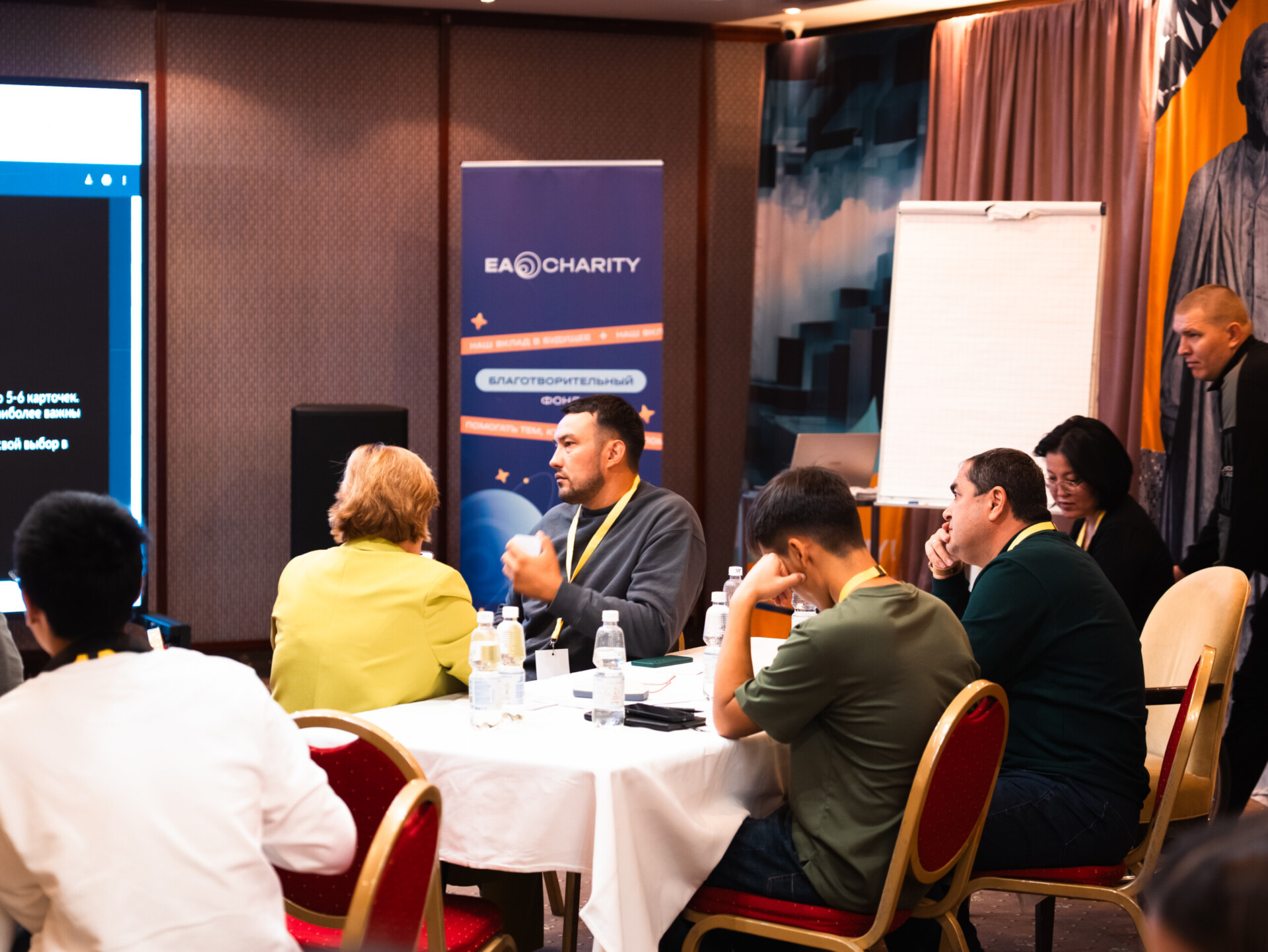
Twenty-six social entrepreneurs from across Central Asia are learning how to build real businesses that not only help others but also sustain themselves. The Tamyr Platform Accelerator began its work on October 2 in Almaty, focusing on practical tools for developing sustainable and meaningful projects.
Over six days, participants from Kazakhstan, Kyrgyzstan, Tajikistan, and Uzbekistan will gain hands-on knowledge for growing their business initiatives. The program covers the fundamentals of strategy, financial sustainability, and marketing, while also creating a space for experience exchange and networking.
I don’t have competitors here — I have partners, colleagues who are as mindful about social entrepreneurship as I am. They point out pitfalls I might not notice myself, and that’s a big advantage for our project, — shares Dilshod Tagoimuradov, participant of the accelerator and director of the public organization Development and Support of Innovation – Almaz.


The Tamyr Platform Accelerator was established in 2025 by the investment holding EA Group and the corporate foundation EA Charity fund to support social startups.
The main question was: how can we continue supporting beneficiaries when charity programs eventually come to an end? The answer seemed obvious — ‘Give a man a fish and you feed him for a day; teach a man to fish and you feed him for a lifetime.’ That’s how the idea of the accelerator for social entrepreneurs was born — a program that helps initiatives become sustainable and create long-term impact, — shares Dastan Akkozha, Project Manager of Tamyr Platform.
Among the speakers are seasoned practitioners with years of hands-on experience: Aisalkyn Talasbekova, head of the John Galt Business Accelerator; Zhanna Prashkevich, agile coach and service designer; Aizhat Ruslanova, Executive Director of IDEA Central Asia; Gani Kassymov, Investment Partner at EA Group; and Nargiz Shukenova, Director of the Batyrkhan Shukenov Public Foundation, and others. They share not only theories but also real working cases from business, social initiatives, and investment projects, stories tested by practice, not just slides.
As a result, participants of the accelerator will be able to define a clear mission, test their ideas, and build financial models. They will also have the opportunity to practice through mini-pitches, where each presentation is followed by professional feedback.
Our sustainability isn’t about money — we work like nailers. But I want a different kind of sustainability. Our team expects that through this accelerator we’ll gain the skills to become financially independent. We’re afraid that one day we might burn out and our beneficiaries will lose the support they rely on. That’s why we want to be able to sustain ourselves, — shares Svetlana Bogatyryova, one of the accelerator participants.
Tamyr Platform received 549 applications from five Central Asian countries. The Expert Board selected 26 participants, representing projects that range from eco and cultural hubs to high-tech AI solutions. Among them are initiatives focused on inclusion and support for people with disabilities, platforms for women and teenagers, services for mothers, educational projects, and anti-bullying campaigns.
During the selection, we had two main questions: What is the impact of the project? and How can we help it? It wasn’t easy, because our participants combine entrepreneurship, the startup spirit, and social impact. That’s why among the Tamyr Platform participants, there are founders of tech startups as well as people developing cultural projects. They all share the same understanding of social entrepreneurship — it’s about making other people’s lives better through their work, — explained Aidar Buribayev, Director of the EA Charity fund.
The finale of the program will take place in Almaty, where participants will present their projects to the Expert Board and compete for grant support of up to 10 million tenge. The number of potential winners is not limited — every project with strong potential and a clear mission will receive support. The total grant pool amounts to 125 million tenge.